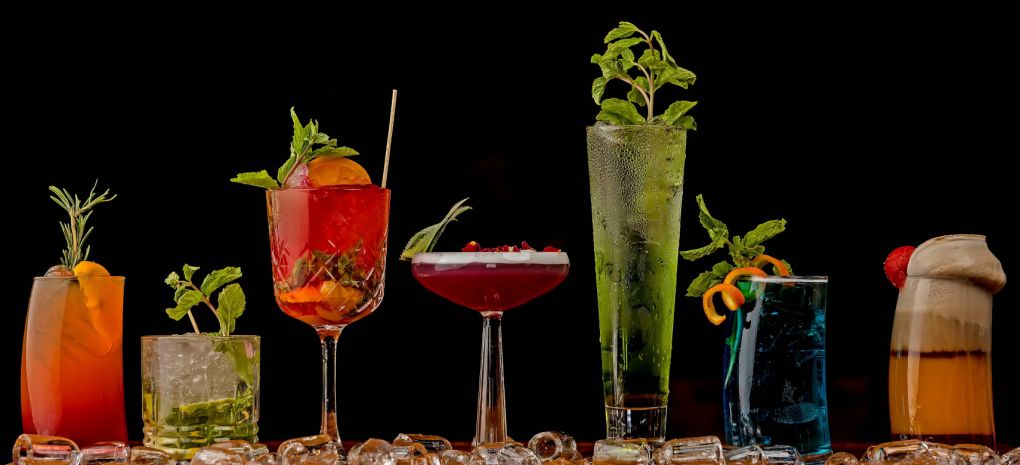
02/01/2025 Explore the top mixology trends for 2025, from zero-waste cocktails and wellness ingredients to AI-driven personalization and cross-cultural flavors
Mixology in 2025 is poised for a thrilling evolution, driven by bold trends that emphasize creativity, sustainability, and innovation. As the beverage industry continues to embrace sustainability with zero-waste cocktails and explore health-conscious options like low- and no-alcohol beverages, consumers are seeking more personalized and immersive experiences. Expect a surge in wellness-driven ingredients, cross-cultural inspirations, and minimalist designs, all blending seamlessly to create unforgettable drinking moments. Bartender Spirits Awards explores the exciting trends shaping mixology in 2025 and how bars and brands are adapting to meet the changing preferences of today’s conscious and adventurous drinkers.
[[relatedPurchasesItems-31]]
Zero-waste cocktails
The rise of closed-loop drinks in 2025 demonstrates the industry's commitment to sustainability and ingenuity. This revolutionary method, also known as no-waste, low-waste, or anti-waste cocktails, aims to repurpose every component in order to achieve near-zero waste. For example, bartenders may make their own spirits from grains and then use perishable components as garnishes or flavor enhancers. This strategy is gentler on the environment, lowers operational expenses, and promotes genuine creativity. According to IWSR, many bars are also creating collaborations with local businesses, utilizing leftover products such as coffee grounds or bread to create a symbiotic environment that seamlessly integrates mixology with sustainability.
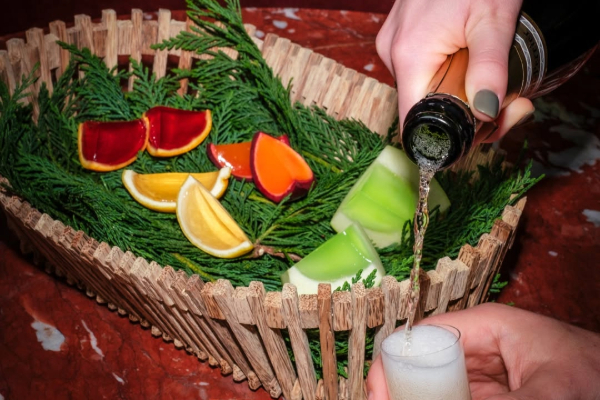
Image: Silver Lyan bar repurposing citrus peels to make jello shots (source).
Low and No Alcohol Cocktails
Consumer preferences are shifting, with low- and no-alcohol drinks emerging as a defining trend for 2025. With health and wellness becoming top priorities, an increasing number of consumers—particularly Millennials and Generation Z—are adopting these alternatives. While 64% of low- and no-alcohol drinkers consume these beverages on a weekly basis, their consumption remains lower than that of alcoholic beverages, indicating latent potential. Flexible lives are altering social gatherings, allowing for inclusive cocktail menus that appeal to conscious drinkers. Bars and businesses can survive by creating creative, flavor-packed alternatives that reflect the health-conscious and socially concerned movement.
Also read: Raising the Bar: Laura Taylor’s Journey with Mingle Mocktails
Wellness-Driven Ingredients
Health-conscious cocktails will gain popularity in 2025 as customers choose beverages that correspond with their wellness goals. Amir Babayoff, beverage director at Ophelia's Babayoff, told Market Watch Magazine that there is an increase in demand for fresh, natural ingredients as well as health-promoting additions such as turmeric, ginger, and green tea. These functional ingredients, which have been shown to have antioxidant and antiinflammatory properties, are part of a larger trend toward wellness-focused beverages. Functional cocktails include components such as ashwagandha, probiotics, and adaptogens, which provide both physiological benefits and enjoyment. With daily supplementing growing more popular, this combination of flavor and function is altering cocktail culture.
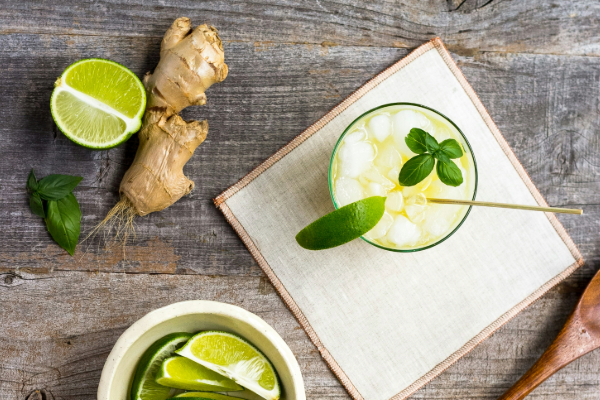
Image: Wellness-Driven Ingredients
Cross-Cultural Inspiration
In 2025, mixology embraces globalization with cocktails that incorporate a variety of cultural themes and flavors. Bartenders are increasingly influenced by various culinary traditions, infusing ingredients such as Japanese yuzu, Thai lemongrass, Mexican mezcal, and Brazilian cachaça into their drinks. These exotic ingredients provide depth, complexity, and a sense of adventure to classic formulas, allowing mixologists to stretch their creative limits. This trend not only demonstrates respect for foreign cultures, but it also provides distinctive drinking experiences that encourage customers to discover the world one sip at a time. Cross-cultural cocktails are revolutionizing the practice of mixology.
Also read: Behind the Bar with Tural Hasanov: Crafting Luxury Cocktails Across Continents
Minimalist Cocktails
In the world of mixology, minimalist cocktails are gaining popularity as they emphasize the art of simplicity. These drinks are distinguished by their simplicity and attention to high-quality ingredients, providing a refined experience that appeals to today's consumers seeking authenticity. Classics such as the Negroni, Martini, and Daiquiri demonstrate the elegance of using fewer components, with each contributing to a harmonized flavor profile. Minimalist drinks also have operational advantages for bars, such as lower inventory costs and quicker employee training. This return to simplicity infuses sophistication, clarity, and sustainability into each glass, making it a standout trend in 2025.
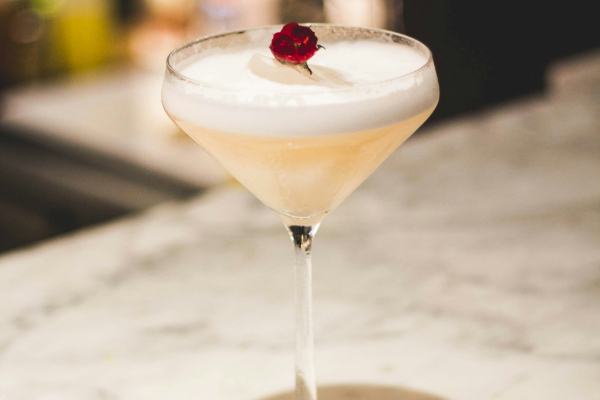
Image: Minimalist cocktail
Experiential Cocktails
The future of mixology is about challenging expectations and providing immersive, multimodal experiences that capture the imagination. According to VML intelligence, 72% of consumers want to please as many senses as possible. Emotions such as astonishment, surprise, and joy are redefining cocktail culture. This trend is consistent with next-generation drinkers in India, Mexico, Italy, and the United Kingdom, who value multi-sensory cocktails enough to pay a premium, according to the Bacardi Global Consumer Survey. As digital weariness and cultural disillusionment increase, businesses and bartenders embrace tastes, formats, and moments that provide 360-degree interaction, transforming cocktails into remarkable sensory experiences.
Coffee and Chocolate Cocktails
The Diageo Bar Academy predicts that coffee-inspired drinks will thrive in 2025, following a 2% to 15% increase in Espresso Martini consumption in 2024. Mr. Black and other brands are setting the standard for high-concentration, low-sugar liqueurs aimed at health-conscious coffee enthusiasts. Diageo World Class finalist Christos Klouvatos emphasizes the bartender's role in educating visitors about specialty coffee cocktails. Meanwhile, decadent chocolate flavors are gaining popularity, inspiring creative twists such as chocolate-infused Old Fashioneds and chocolate-orange Negronis. This combination of robust tastes keeps coffee cocktails a sophisticated and sensory-driven favorite.
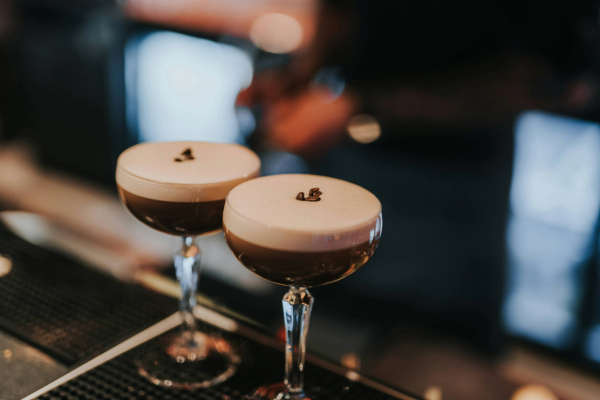
Image: Espresso Martini
Influence of technology
AI and digital technologies are poised to alter shopping and mixology experiences by increasing personalization and ease. AI-powered recommendations will offer products based on your likes and purchasing history, emphasizing niche brands and limited editions. Customers will benefit from AI chatbots that can answer queries about ingredients, flavors, and mixology recommendations, saving them time. Tailored pricing techniques will provide discounts depending on browsing history and inventory levels, optimizing the buying experience. In mixology, computerized menus and automated systems will increase efficiency and uniformity, making the customer experience faster and smoother.
Flavor-Forward Beverages
The ready-to-drink (RTD) category is changing as consumers demand more than just fruity flavors. Nostalgia-inspired cocktails are gaining popularity, drawing on childhood experiences to provide both excitement and comfort. Successful innovation in this field promotes genuine storytelling, sustainability, and functional benefits over passing trends. Brands are embracing premiumization and creating flavors that cater to wellness-conscious consumers. Classic cocktails are being reimagined with innovative twists, such as cucumber-spicy martinis and whiskey-infused Palomas. As flavor exploration continues, RTD brands that offer depth, purpose, and uniqueness will stand out in an increasingly crowded market.
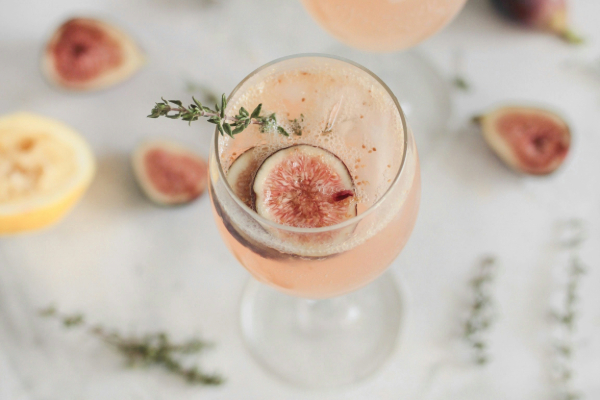
Image: Fruit-flavored cocktails
Bespoke Cocktails
Hyper-Personalized Cocktails will emerge as bars and brands use AI and data analytics to craft drinks tailored to individual tastes. By analyzing customer insights, mixologists can create beverages based on factors like flavor profiles, mood, and even ingredient preferences. This approach goes beyond traditional cocktail crafting, considering elements such as glassware and presentation to enhance the experience. The focus will be on delivering a truly unique, personalized drink that aligns with each customer's distinct preferences, ensuring a more memorable and engaging cocktail experience.
As we look ahead to 2025, the future of mixology is all about embracing change while honoring tradition. From sustainable zero-waste practices to the emergence of personalized, wellness-driven drinks, it is evident that innovation, creativity, and customer-centric experiences will emerge as key trends. Bars and brands that stay ahead of these trends will not only stand out but also connect with a more conscious, adventurous audience. The future of cocktails is exciting, and it’s only just beginning to unfold.
Header image sourced from Pixabay
Related Links
The Most Popular Cocktails of 2024
Nine Spirits Trends You Can Expect in the 2025 U.S. Drinks Market



